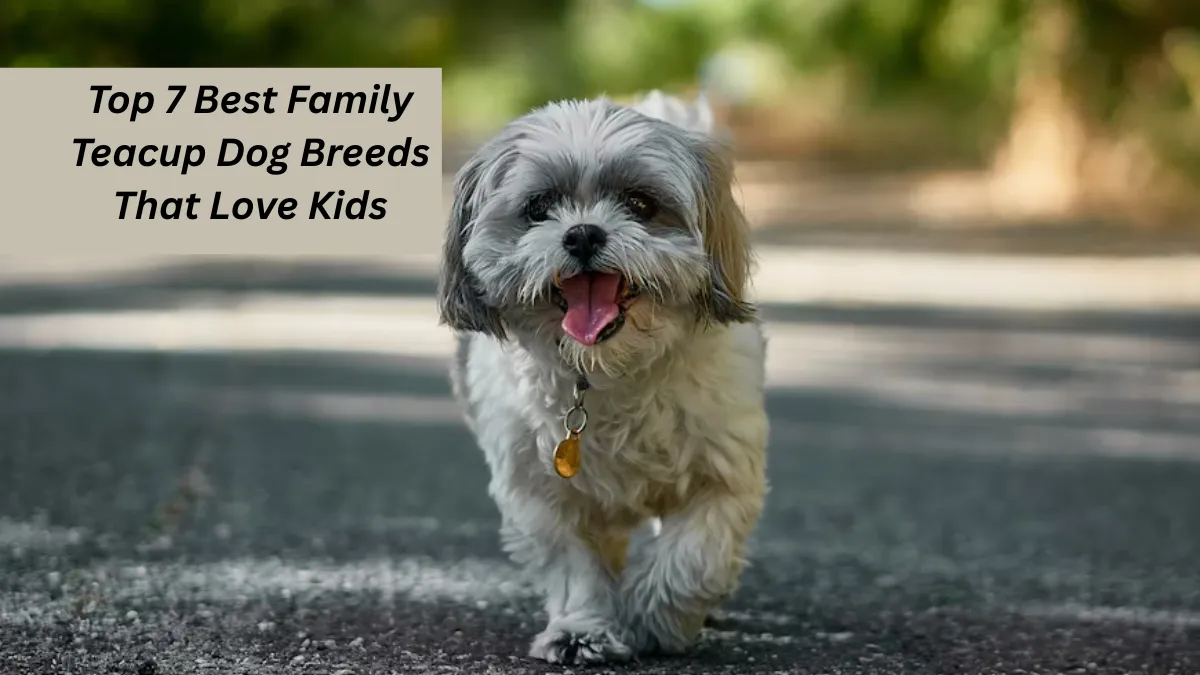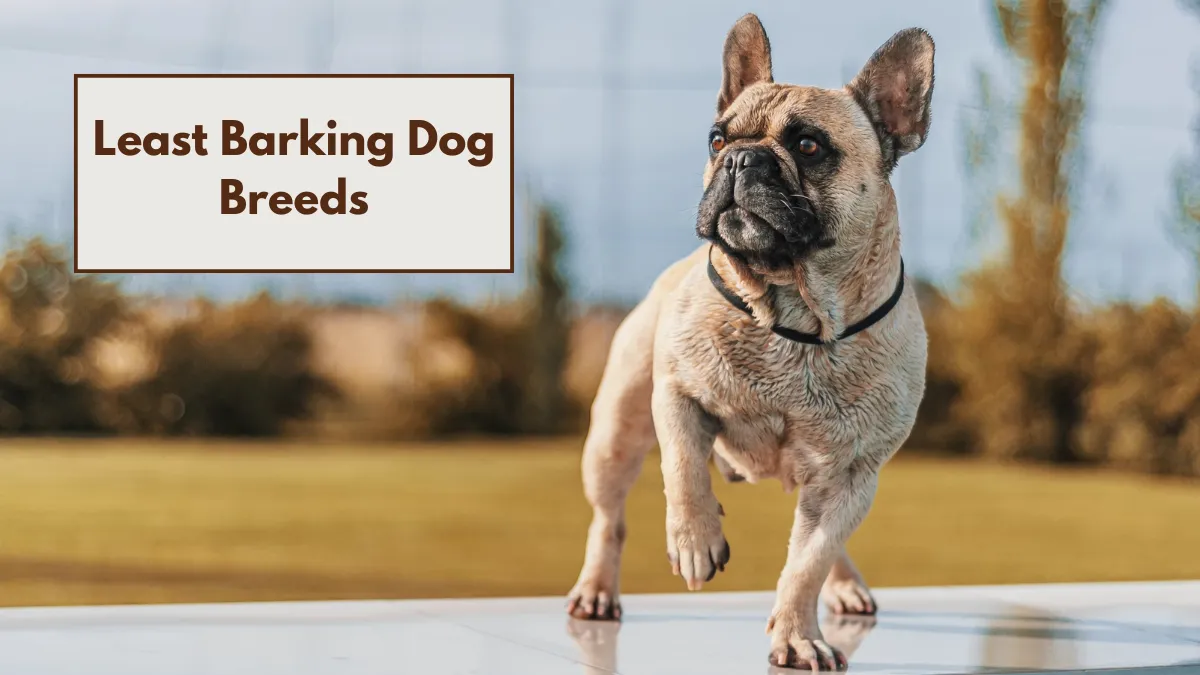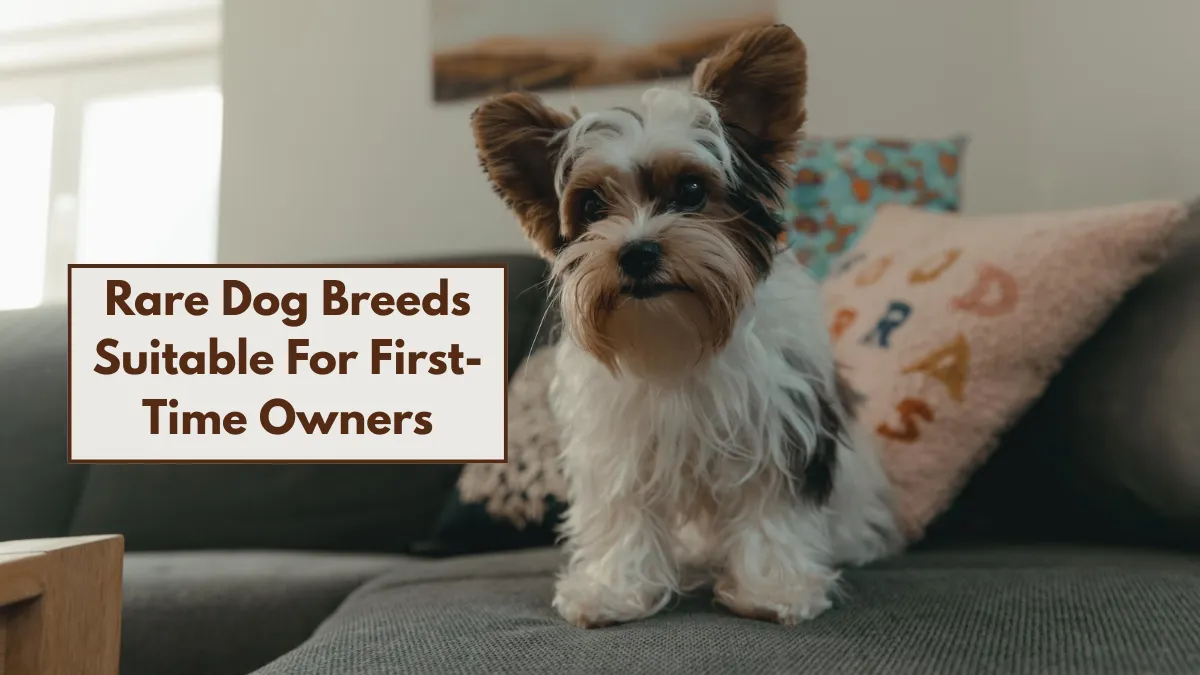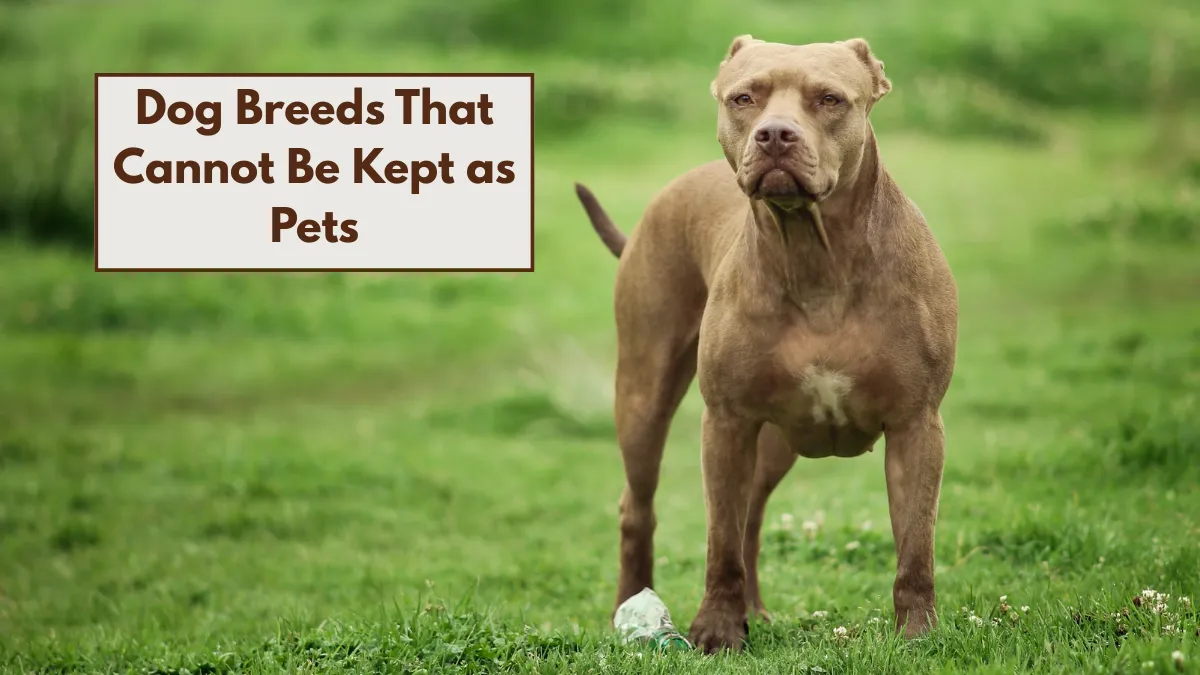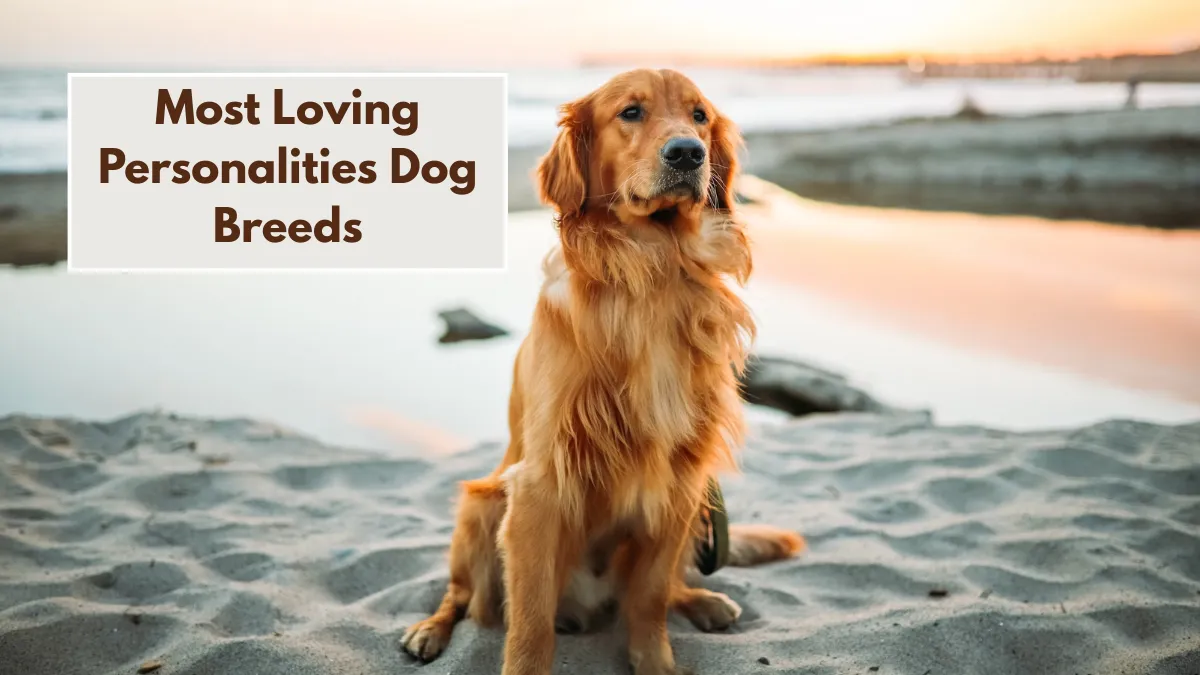In the United States, pets hold a cherished place in households, with more than 66% of families owning at least one. A growing trend shows many families leaning toward smaller dog breeds, not just for convenience but for companionship. One category, in particular, is winning hearts everywhere—teacup dogs.
Although these dogs weigh just a few pounds, their personalities are vibrant. Parents find them easy to care for, while kids love their playful and tiny nature. Their small stature makes them ideal for both large homes and compact apartments.
What sets a teacup breed apart as a family-friendly option isn’t just its size—it’s their calm temperament, affectionate nature, and strong emotional connections. These qualities ensure they adapt well to different home environments and family dynamics.
If you’re searching for a loyal and manageable furry friend, explore these teacup breeds that are cute, intelligent, and wonderfully suited for every family member.
1. Shih Tzu
Shih Tzus are perfect home companions, particularly in quieter settings. Their affectionate nature doesn’t require constant attention. Instead, they’ll sit contentedly by your side, making them great for families with children or elderly relatives.
Naturally Friendly With Kids
This breed shows a deep emotional sensitivity, often picking up on children’s moods and reacting gently. They handle active play calmly and are rarely startled or aggressive, making them reliable around even the most excitable kids.
Grooming That Becomes Routine
Shih Tzus require consistent brushing to maintain their silky coats and avoid tangles, as noted by Showsight Magazine. Their grooming needs are simple once a routine is established and often become a bonding time between the pet and the family.
History as Imperial Companions
Once bred to keep Chinese royalty company, their purpose was always to be loving household pets. This history continues to shape their calm and devoted temperament today, cementing their legacy as ideal teacup dogs for families.
2. Miniature Poodle
Miniature Poodles are known for their quick learning and ability to respond well to voice commands or even subtle hand signals. Their obedience makes family routines smoother, especially in high-energy homes with children.
Hypoallergenic Coat Advantage
Their curly, low-shedding coat is a great match for families managing pet allergies, according to PetMD. Grooming every few weeks helps keep their appearance neat and allergy-friendly, making them easier to maintain than long-haired dogs.
Intelligence That Needs an Outlet
Miniature Poodles consistently rank among the smartest breeds. They excel in mentally stimulating games and problem-solving activities, which help prevent boredom-related behavior. They thrive more on mental challenges than just physical play.
Historically Popular in Royal Circles
French aristocrats adored these dogs, and they often appeared in court paintings during the 1700s. Their elegant grooming needs and noble history influence their refined behavior. Today, teacup versions are bred for even more compact companionship.
3. Havanese
The Havanese adjusts well to family lifestyles, especially when routines are consistent. Their easygoing nature helps them remain composed during hectic schedules, providing comfort and calmness when families are busy.
Social Intelligence With Children
They’re especially aware of their surroundings and read tone and emotion well. Without being overbearing, they respond with calm affection, a rare trait in small breeds. This makes them excellent with children who need gentle interaction.
Ancestry Tied to Cuban Nobility
Havanese dogs originally lived with wealthy Cuban families in the 1800s. These early companions were chosen for their friendly nature and soft, easy-to-maintain coats. Their gentle temperament continues to reflect this noble heritage today.
Naturally Compact and Agile
Though small, they are agile and confident movers. They navigate tight living spaces easily and safely, which is important in homes with toddlers or elderly people. Their careful movements prevent household accidents or disruptions.
4. Cavalier King Charles Spaniel
This spaniel breed is intuitive and mirrors family emotions, often adapting to each person’s mood. They read gestures and expressions well, helping them blend smoothly into daily family routines and provide emotional support.
Comfort Around Different Pets
Their gentle nature makes them suitable for households with other animals. They seldom challenge other pets for dominance, which helps reduce conflict. Their soft demeanor fosters harmony among dogs, cats, and humans alike.
Travel-Ready and Space-Efficient
These spaniels adjust easily to apartment living and love car rides. Their calm attitude and compact size make them excellent travel companions. Because they don’t bark much, they’re well-suited for tight living quarters.
Royal Roots With a Practical Twist
This breed dates back to British royalty and was even used to attract fleas away from their owners, as reported by the Cavalier Club. Their noble history is matched by practical traits that make them ideal indoor pets.
5. Maltese
Maltese dogs adapt beautifully to indoor lifestyles. Their quiet steps and intuitive understanding of family activity make them wonderful companions. They’re also hypoallergenic and shed very little, which simplifies daily upkeep.
Early Training Is Essential
While naturally affectionate, Maltese benefit from gentle yet consistent training during their early months. Soft commands help curb tendencies like barking. Their intelligence ensures they learn household expectations fairly quickly.
Known for Long Historical Roots
With ancestry stretching back over 2,000 years, Maltese were once beloved by Roman aristocrats. They’ve always been bred for companionship rather than work, which explains their calm, loyal nature within family homes.
Common in Teacup Varieties
Selective breeding has created a teacup Maltese version that retains their core characteristics. These tiny dogs often live up to 14–15 years, making them one of the longest-living teacup options available with proper care.
6. Bichon Frise
Bichon Frises maintain an even temperament no matter how loud or chaotic their surroundings become. They offer predictability and patience, ideal for families whose routines change frequently or have multiple children.
Easily Socialized With Others
With the right introductions, Bichons adapt well to other pets and people. They take time to observe before reacting, making them less likely to act impulsively. This thoughtful behavior helps them fit well in dynamic households.
Gentle Yet Active Indoors
These little dogs are lively but not overwhelming. They play softly, avoiding rough behavior. Their controlled energy allows them to stay active and entertained indoors without causing messes or accidents.
Known for Their Cheerful Disposition
Historically adored by French nobility and performers alike, the Bichon Frise’s lovable charm even influenced the term “Bichonner,” meaning to pamper. Their joyful nature and affectionate attitude have long been admired across cultures.
7. Papillon
Papillons are alert and reactive in a balanced way. They pick up on sounds and movements quickly but don’t overreact. This makes them great household monitors without becoming noisy or overly excited.
Fine-Motor Intelligence
These dogs have exceptional agility and can learn complicated tricks involving precision. Unlike many breeds of their size, Papillons excel in fine-motor skills, making them favorites in agility competitions and obedience tasks.
Durability in a Small Frame
Even though they weigh under 10 pounds, Papillons are tough and agile. Their structure supports active play without putting stress on their joints. This makes them ideal for playful families seeking long-term health in a small dog.
Famous Royal Lineage
Marie Antoinette’s beloved Papillon is a famous part of the breed’s history, as noted by Hepper. This royal connection has been documented in kennel clubs and continues to highlight their prestigious background in dog breeding records.
Last Thought
Teacup dogs bring more than just cuteness—they offer loyalty, adaptability, and emotional intelligence in a small package. For families seeking a manageable and loving pet, these breeds provide a unique blend of playfulness and peace. With proper care, training, and affection, they can become cherished members of any household, big or small.
FAQs
Q1: Are teacup dogs good for first-time pet owners?
Yes, many teacup breeds are easy to train and care for, making them ideal for beginners.
Q2: Do teacup dogs need special food or care?
They often need high-quality, portion-controlled diets and gentle handling due to their size.
Q3: Are teacup breeds safe for toddlers?
Some are, but supervision is key—tiny dogs can be easily injured during rough play.
Q4: How long do teacup dogs usually live?
With proper care, many live 12–15 years, depending on the breed and health factors.
